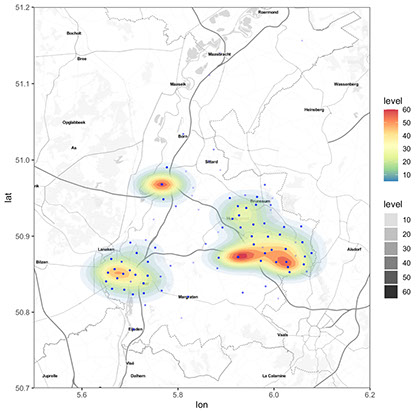

on the determinants of adult cognitive development
🇱🇺
When people get older, memory and other cognitive functions seem to change. But is this true for everybody?
It turns out that many young people are outperformed by middle-aged or older persons on cognitive performance tests. So what are the characteristics of people who age succesfully, what causes the age-related cognitive changes seen in usual aging, and what are the determinants of pathological aging, such as dementia?
These are the main questions of the Maastricht Aging Study (MAAS). This research program consists of several related studies about the biological, medical and psychosocial aspects of cognitive aging. MAAS is a longitudinal study in nearly 1,900 individuals, aged between 24 and 81 years. Since 1992, our participants were tested at fixed intervals over a period of 12 years. The analysis of the longitudinal data is still ongoing and is performed by researchers with a wide range of disciplinary backgrounds. In 2023, the 25 year follow-up was done in the 719 still available participants. Since the start, 112 participants have been diagnosed with dementia.
MAAS is carried out at Maastricht University and is based at the Maastricht school for Mental Health and Neuroscience (MHeNS), in association with the Caphri School for Public Health and Primary Care, and the Registration Network of Family Medicine (RNFM).
The river Maas runs through the heart of Maastricht. It is a symbol of the connection between the city and the MAAS study, but also the continuous and ongoing character of this longitudinal project.

Heatmap showing the origin of MAAS participants, living in the province of Limburg, the Netherlands. Colour is determined by the participation of RNFM practices. Three city regions stand out: Maastricht (SW), Heerlen-Parkstad (SE) and Beek-Elsloo (N).
© 2023 The Maastricht Aging Study - MAAS
MAAS is a longitudinal study into
the determinants of cognitive aging since 1991.
A 25 year follow-up was completed in 2023.